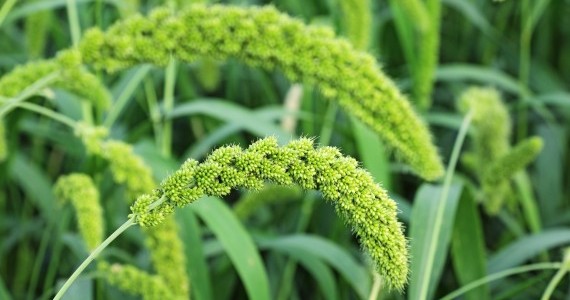Transforming Indian agriculture: IfM key partner in tackling major global challenge

The IfM’s Centre for International Manufacturing is part of the Cambridge team working with Indian scientists to bring about a second Green Revolution. This project – TIGR2ESS – is one of two Cambridge-led research collaborations that have been awarded almost £15 million in funding. The Minister of State for Universities and Science, Jo Johnson MP, announced this funding today during a visit to Cambridge’s Sainsbury Laboratory.
The awards are part of the Global Challenges Research Fund, which aims to build upon research knowledge in the UK, and strengthen capacity overseas, to help address challenges, informed by expressed need in the developing countries.
The first Green Revolution – in India and other developing countries, in the 1960s – brought a massive increase in crop production that sustained the country’s mushrooming population. But now there are new pressures – not just the need to produce even more food, but to reduce the damage done by excessive use of pesticides, fertiliser and water in the face of climate change.
TIGR2ESS is a collaboration between UK and Indian scientists which seeks to frame the big question – how to bring about a second Green revolution – in all its breadth and depth. India is developing fast– agriculture needs to take account of urbanisation, for example, which has drawn so many away from the land. Smallholder farmers- particularly women- need smart technologies to sustain crop yields, and improve health and nutrition.
The TIGR2ESS programme will assess these options, as well as supporting basic research programmes, and providing advice to local communities. There will be many opportunities for academic exchanges, mentoring and career development for scientists from both countries. Links with the relevant government ministries in India, plus industrial connections built into the programme, will hopefully turn the best recommendations into reality.
“We are extremely pleased that the TIGR2ESS programme will help to deliver our vision for partnerships with institutions in India to improve crop science and food security,” says Professor Howard Griffiths, Co-Chair of the University of Cambridge’s Strategic Initiative in Global Food Security.
“Understanding how food gets from the farm to the plate is an integral part of food security. Using our supply chain mapping and modelling tools we hope to analyse the end-to-end production, processing and distribution of food as part of exploring how we make supply chains as resource efficient and from a resource stewardship perspective as transparent as possible in order to minimise waste and environmental impact,” adds Dr Jag Srai, Head of the IfM’s Centre for International Manufacturing.
For more information about this project and the University’s other Global Challenges Research Fund collaboration click here.
Photo credit: Fotolia










